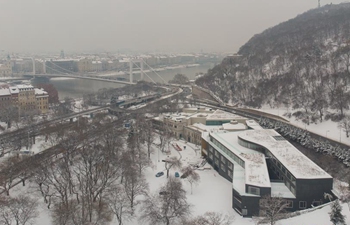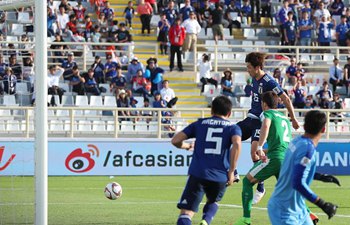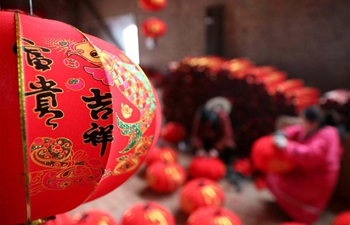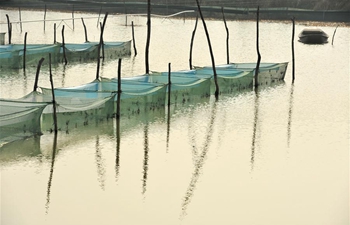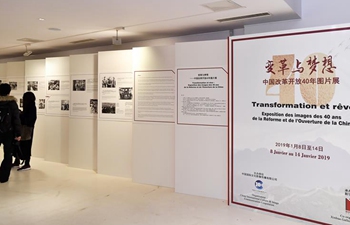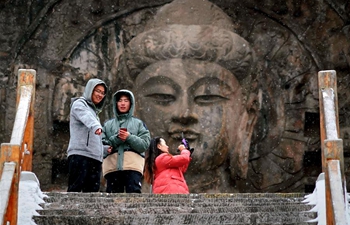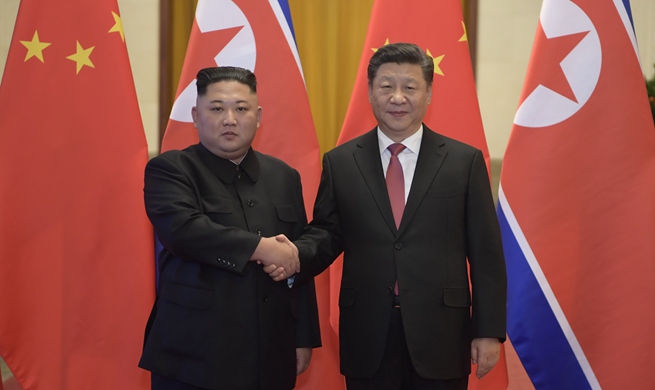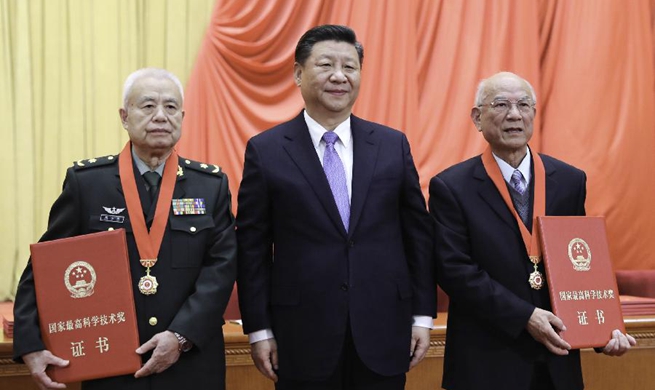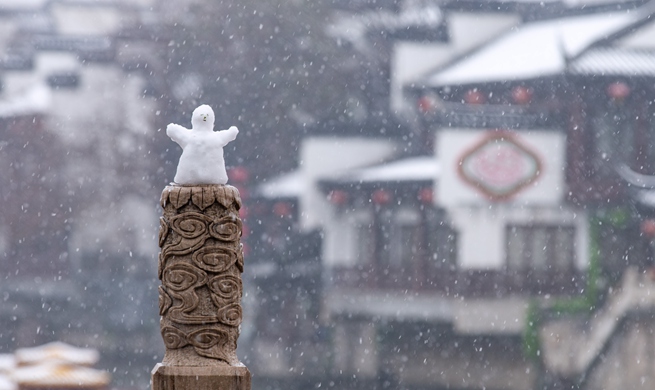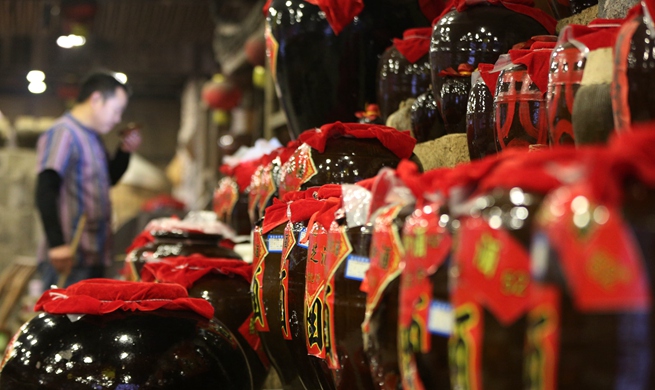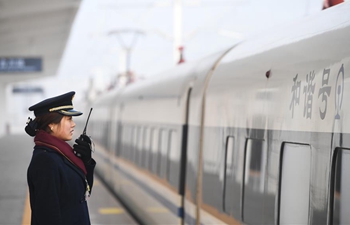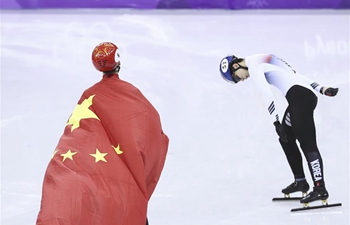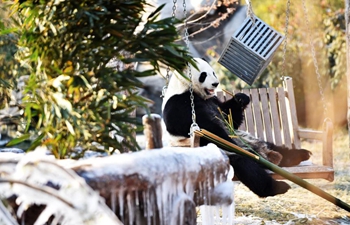BEIJING, Jan. 9 (Xinhua) -- China's discipline inspection and supervisory authorities have introduced more effective measures to tackle corruption among their own staff over the past year to ensure scrutiny over supervisors.
At least six high officials with these agencies have been investigated since the 19th National Congress of the Communist Party of China (CPC) in late 2017, according to sources with the CPC Central Commission for Discipline Inspection (CCDI) and National Supervisory Commission (NSC).
On Dec. 20, the CCDI and NSC announced that Qiu Daming, former deputy head of the discipline inspection commission and supervisory commission in northeast China's Jilin Province, had been dismissed from public office and expelled from the CPC over violations including taking bribes and leaking information of case investigations.
Two days earlier, the news came that Yang Xihuai, former deputy head of the discipline inspection commission and supervisory commission in Liaoning Province, has been removed from his posts.
The penalties in these cases show "zero tolerance for enforcement personnel's violations of Party discipline or state law," said a statement from the CCDI and NSC.
China has set up supervisory commissions at all levels across the country over the past year to work together with the CPC's discipline inspection agencies to ensure "all public servants exercising public power" are subject to supervision.
More power means more responsibility and severe tests. Public concern has been growing as to "who supervises the supervisors" in order to dispel "darkness hiding beneath the light."
To streamline anti-graft and discipline work, the CPC made public work rules for disciplinary inspection organs on Jan. 6, regulating the procedure of how the investigation should be initiated and conducted.
The work rules include stipulations to close loopholes in inspection procedures and minimize the possibility of outside intervention.
For example, it forbids discipline inspection personnel to take judicial or discipline supervisory jobs or any job with a potential conflict of interests within three years of resignation or retirement.
To enhance oversight of their own staff, the top anti-graft bodies have established a "guest supervisor system."
The first group of 50 part-time supervisors has been hired to oversee the work of the anti-graft bodies at all levels and their staff. They are expected to submit opinions and suggestions to improve disciplinary inspection and supervision work.
The CCDI and NSC have also paid great attention to the education and training of their personnel. At least 37,000 officials attended more than 180 training courses in the past year.
"These internal oversight and control measures help to make the institutional design of China's supervisory system more scientific and standardized, managing to fasten the cage of regulations for the law enforcer's power," said Professor Xie Chuntao with the CPC Central Committee Party School.




